Silvio Ghilardi
Relational Action Bases: Formalization, Effective Safety Verification, and Invariants (Extended Version)
Aug 12, 2022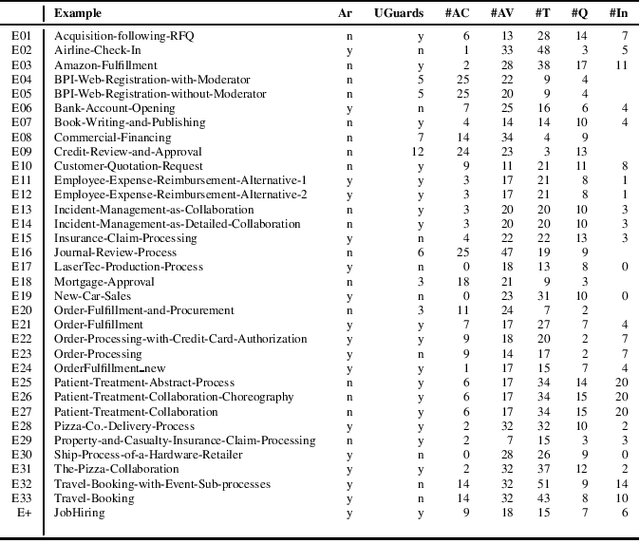
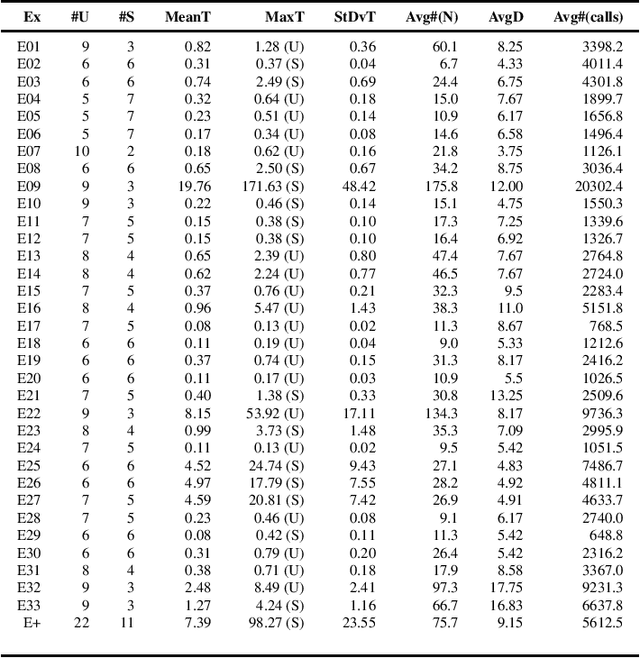
Abstract:Modeling and verification of dynamic systems operating over a relational representation of states are increasingly investigated problems in AI, Business Process Management, and Database Theory. To make these systems amenable to verification, the amount of information stored in each relational state needs to be bounded, or restrictions are imposed on the preconditions and effects of actions. We introduce the general framework of relational action bases (RABs), which generalizes existing models by lifting both these restrictions: unbounded relational states can be evolved through actions that can quantify both existentially and universally over the data, and that can exploit numerical datatypes with arithmetic predicates. We then study parameterized safety of RABs via (approximated) SMT-based backward search, singling out essential meta-properties of the resulting procedure, and showing how it can be realized by an off-the-shelf combination of existing verification modules of the state-of-the-art MCMT model checker. We demonstrate the effectiveness of this approach on a benchmark of data-aware business processes. Finally, we show how universal invariants can be exploited to make this procedure fully correct.
Petri Nets with Parameterised Data: Modelling and Verification (Extended Version)
Jun 11, 2020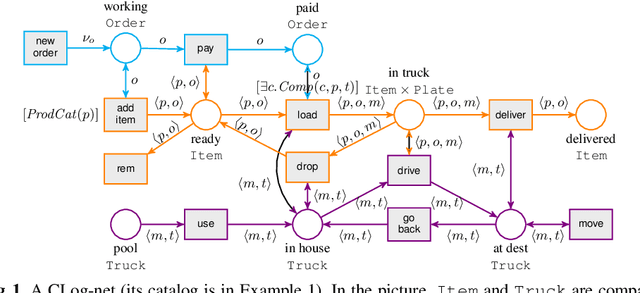
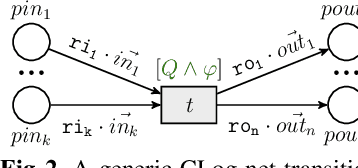
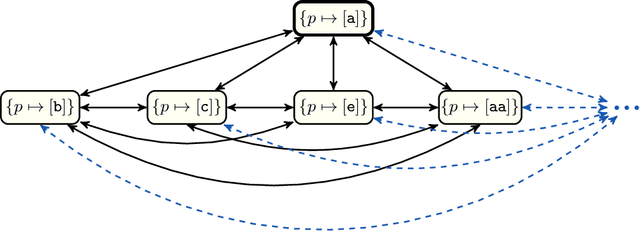
Abstract:During the last decade, various approaches have been put forward to integrate business processes with different types of data. Each of such approaches reflects specific demands in the whole process-data integration spectrum. One particular important point is the capability of these approaches to flexibly accommodate processes with multiple cases that need to co-evolve. In this work, we introduce and study an extension of coloured Petri nets, called catalog-nets, providing two key features to capture this type of processes. On the one hand, net transitions are equipped with guards that simultaneously inspect the content of tokens and query facts stored in a read-only, persistent database. On the other hand, such transitions can inject data into tokens by extracting relevant values from the database or by generating genuinely fresh ones. We systematically encode catalog-nets into one of the reference frameworks for the (parameterised) verification of data and processes. We show that fresh-value injection is a particularly complex feature to handle, and discuss strategies to tame it. Finally, we discuss how catalog nets relate to well-known formalisms in this area.
 Add to Chrome
Add to Chrome Add to Firefox
Add to Firefox Add to Edge
Add to Edge